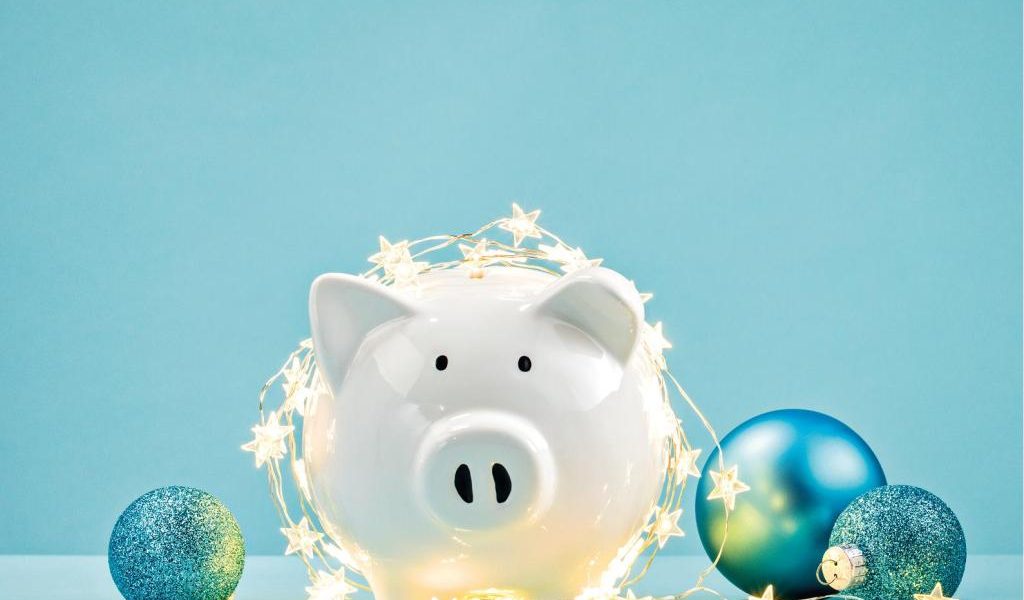You don’t have to become Scrooge to save money this season and avoid the bank account blues in the new year – here’s how
Between decorations for the tree, presents for all your family and friends and buying enough food and drink to make it through to the start of January, it’s no wonder that December is the most expensive time of the year – in fact, the average UK household spends an eye-watering £2,500*. So how can we stop costs spiralling (or snowballing) out of control? We’ve called in the experts to show us how to keep the costs down this Christmas – without having to make too many sacrifices!
Make a budget
First things first, it’s time to decide how much you want to spend this Christmas. “Without a budget, many of us end up spending more than planned,” says money expert and financial advisor Sam Jennings, founder of Jennings & Co (jenningsfp.co.uk). “Create a category for each of the areas you plan to spend money on – such as gifts, food, parties and decorations – then write down how much you should spend on what area, and how much on each item. ”If you’re struggling to do it yourself, head to moneyadviceservice.org.uk to use its online Christmas money planner and it’ll work it out for you.
Limits are good
“Try setting limits on how much you’ll spend on presents for your loved ones,” says Jamie Smith-Thompson, managing director of pension advice company Portafina (portafina.co.uk). “It may be a cliché, but the best present is spending time together. If you stick to limits, then there will be no awkward conversations, and you could always spice it up by introducing a secret Santa.”
Look out for gift wrapping
“Wrapping your presents isn’t only time consuming, it can also be expensive,” warns Sam. “Many retailers will offer this as a free service, so when you’re in store, don’t forget to ask if they do, or if you’re ordering online, keep an eye out for the gift wrapping option at the checkout.” However, if you enjoy the process of wrapping gifts yourself, why not repurpose old maps or newspapers for the job? Or, try using fabric – not only will this look pretty under the tree, it’s also better for the environment as it can be reused many times.
Work out a route
Present shopping can be frustrating when you’re trudging around shops in a fluster and buying things you don’t really need. “If you’re shopping in a city centre, go online and download a map or directory of what stores are there and their locations,” says Sam. “Before you go, work out your walking route and make a list of potential presents. This will mean you waste less time and money looking around and browsing shops, purchasing items you haven’t accounted for.” This will also cut down the time the shopping trip will take, which is a plus if you’re having to drag impatient kids (or your partner!) around the shops with you.
Use tracking websites
On the look out for this year’s must-have toy? “Sites such as Alertr are perfect for purchases you know your family want as they will alert you as soon as the price has dropped on that product,” says George Charles, spokesperson for moneysavingheroes.co.uk. “This way, you can always be sure you’re buying it when it’s at its cheapest.”
Be personal
“Not everything has to be bought from a shop,” Sam reminds us. “Try giving something that is home-made – not only is this more personal and can mean so much more due to the time spent on it, it can also be so much cheaper than buying from the high street.” If you’re a knitter or crocheter, why not make a scarf or a cushion cover? Or how about a selection of baked goods, or a jar of jam?
Avoid food waste
Many of us know the feeling of tearing around our local supermarket on Christmas Eve, panic-buying things without thinking about whether or not they’re really necessary. All this means is that it gets wasted, which as well as not being eco-friendly, is also a waste of money. Make a list of all the food you need beforehand, and try to choose things that can be frozen so you can keep them for longer than New Year’s Eve. Think about what you’re buying too, and don’t just get things because it’s tradition – if you don’t like Christmas pudding, for example, leave it on the shelf.
Embrace the small things
The festive season can mean a lot of social activities, but you don’t have to go overboard with spending. “Rather than expensive day trips or nights out, you could opt for family walks and social evenings in,” says Jamie. “There are so many on and offline games available that it doesn’t have to mean sulking over Monopoly or Trivial Pursuit tantrums!”
Look to the future
“Once Christmas is over, the last thing you probably want to think about is doing it all again, but forward planning is essential for budgeting,” explains Sam. “Try to put away an affordable amount each month, however small that may be. By the time December rolls around again, you’ll have 12 months worth of savings to use towards that year’s Christmas. Also, keep an eye out for bargains in the shops throughout the year. There is nothing stopping you from buying something in April and storing it in the loft ready for December. This should help relieve the stress of last minute shopping, and also means your savings at the end of the year will go further due to having fewer presents to buy.



















